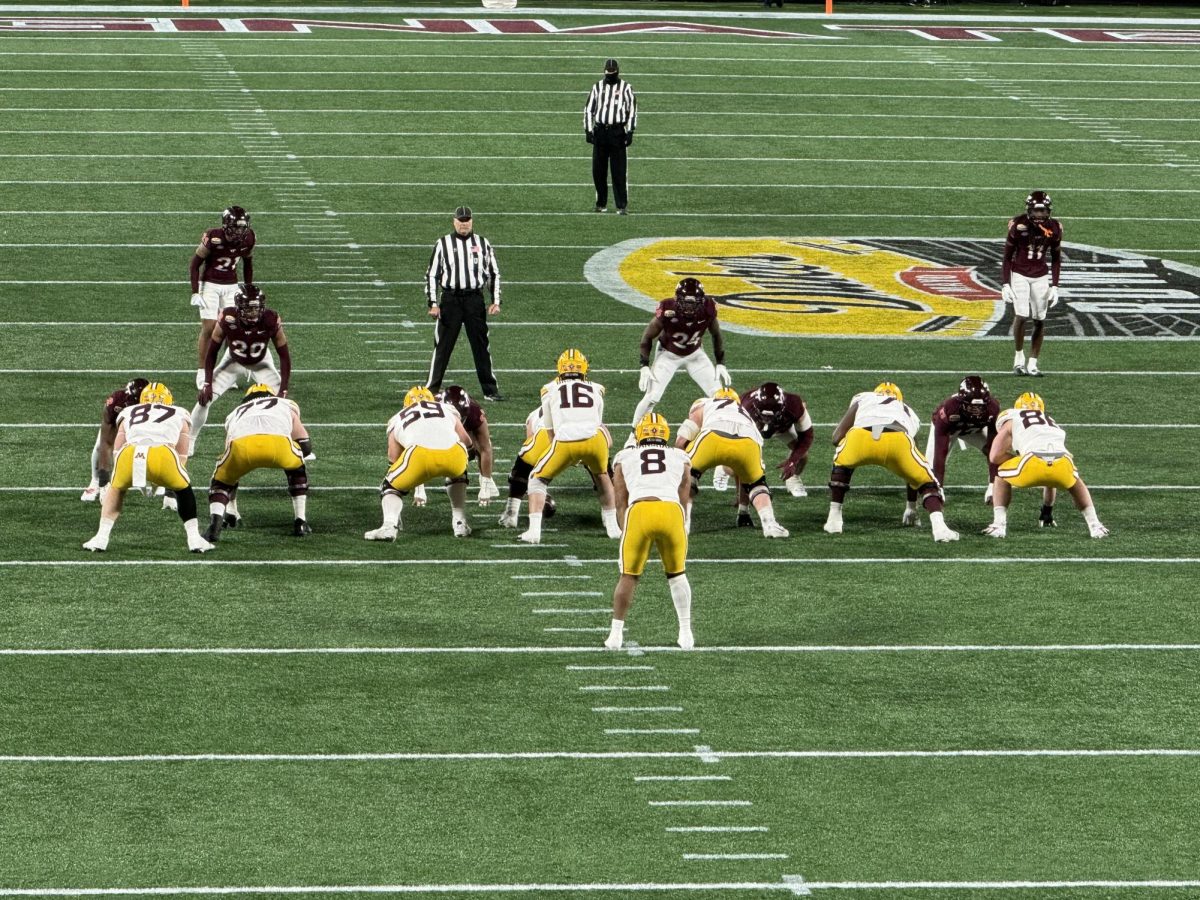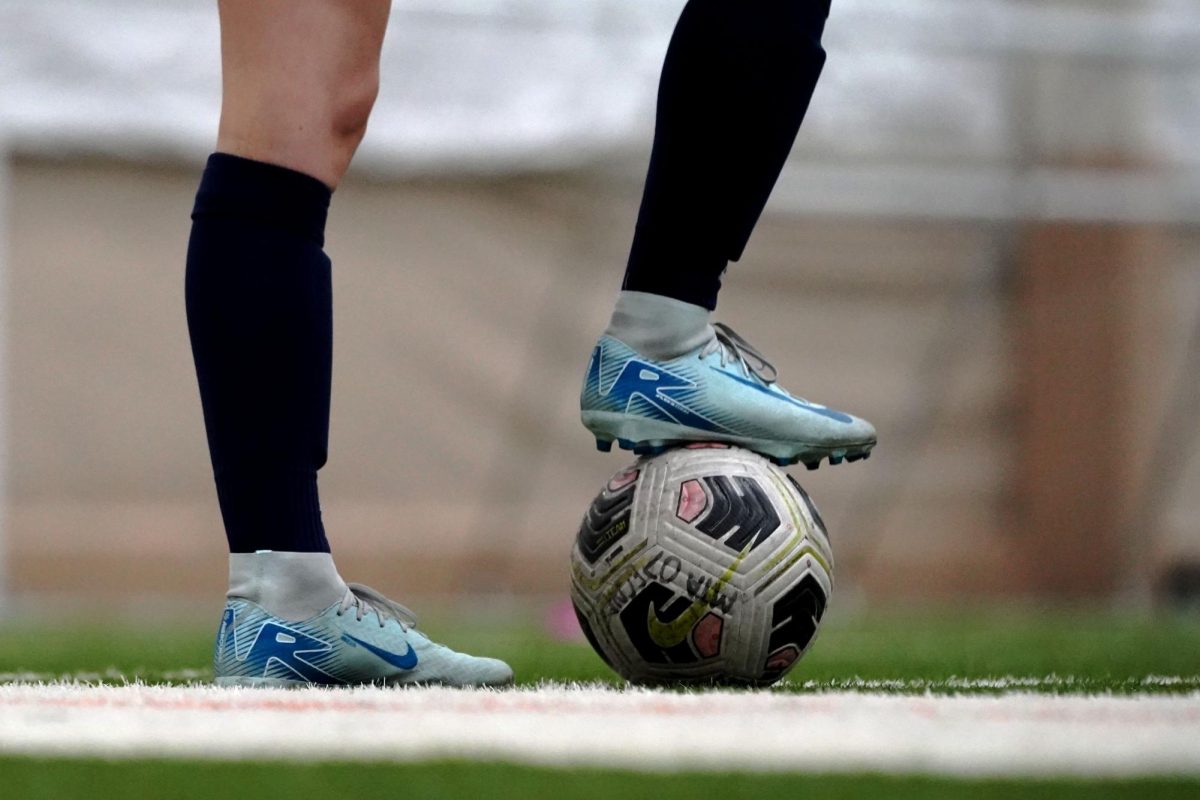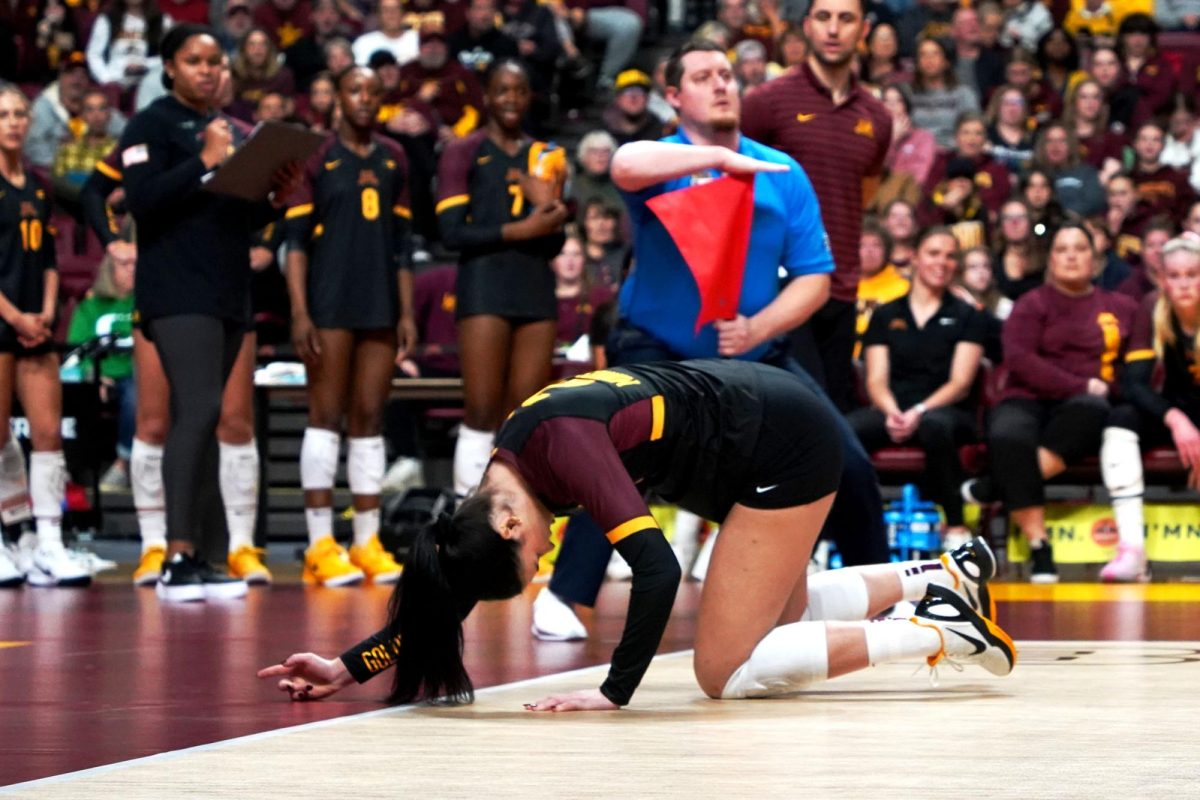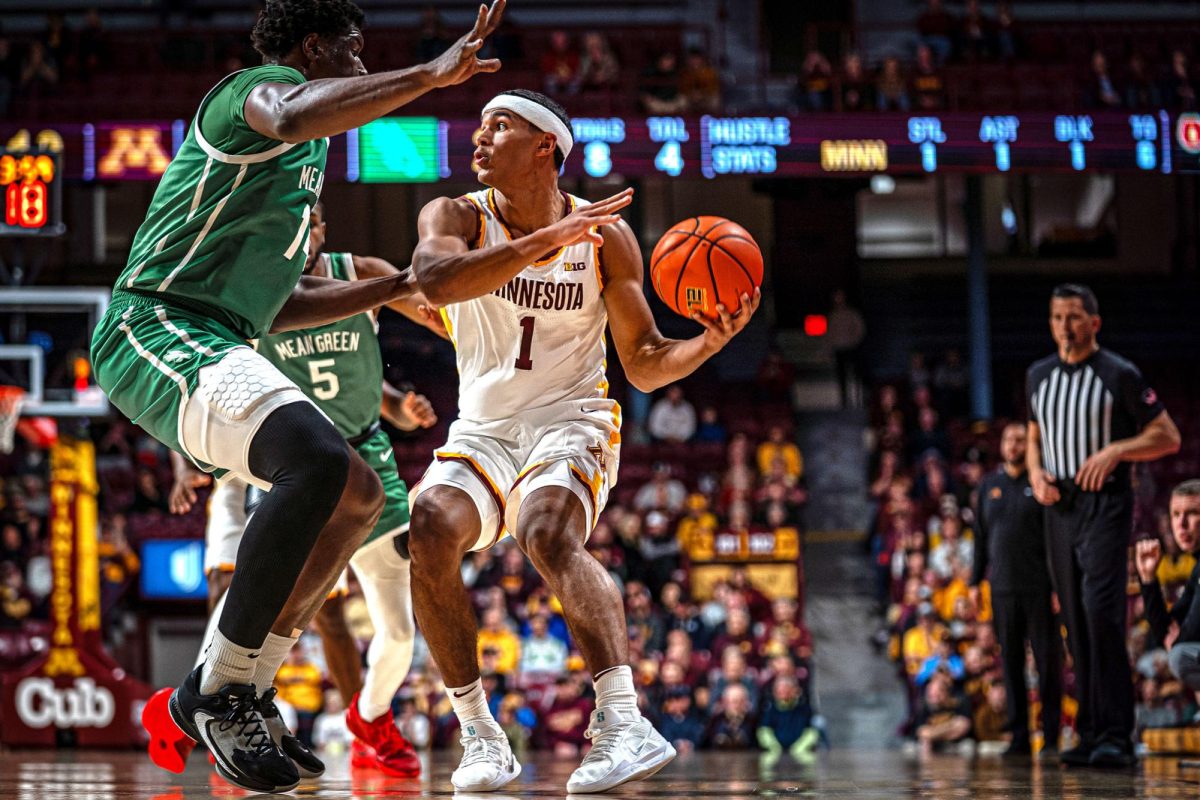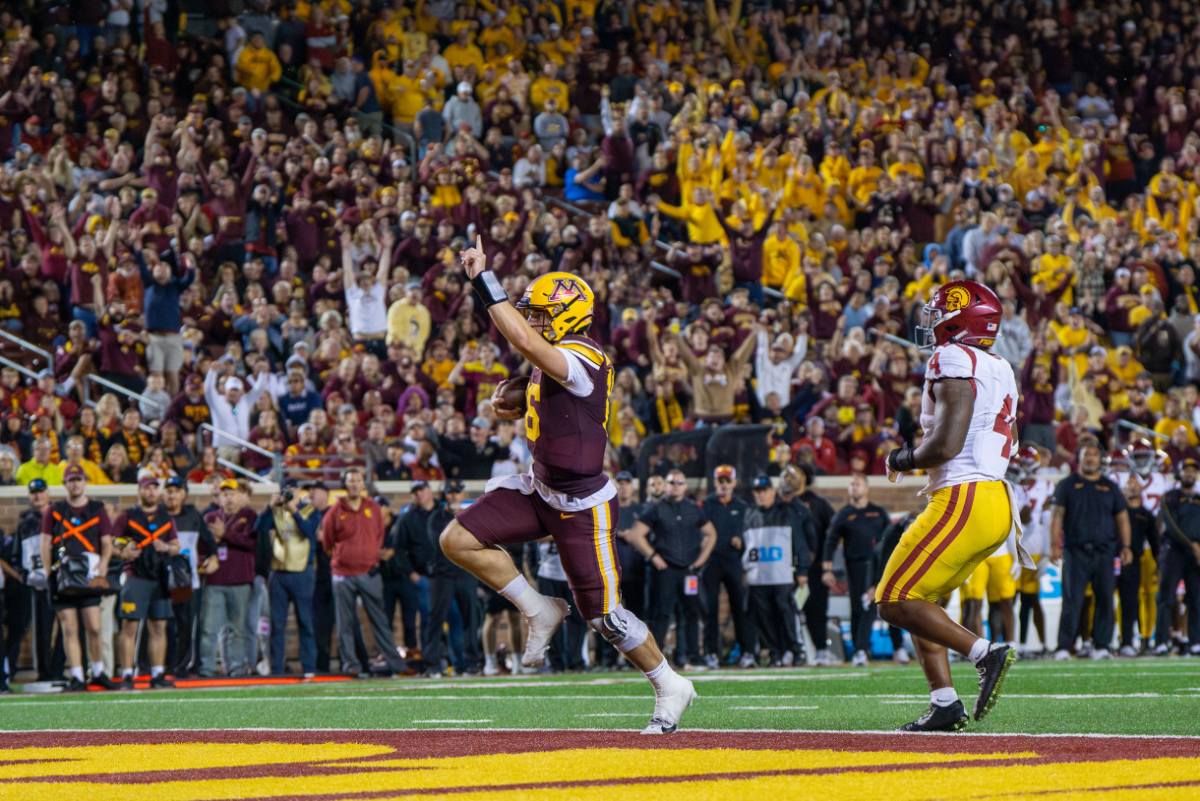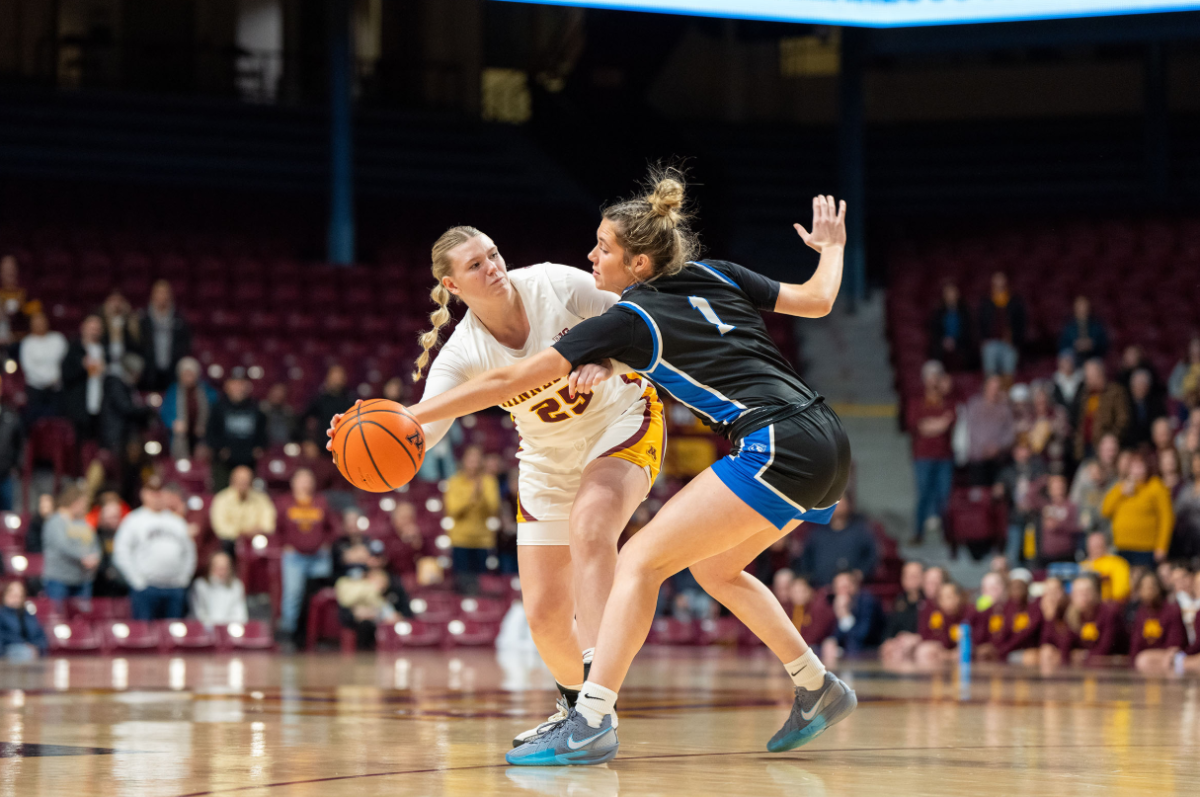After an outcry from Gov. Mark Dayton and student leaders, the University of Minnesota’s athletics department will return to previous student ticket bundling practices.
This season, the University sold season tickets in bundles before it put individual season tickets on sale.
The school reversed that system hours after Dayton sent a letter to University President Eric Kaler criticizing the policy and less than a day after the University’s Student Senate passed a resolution in opposition to the practice, saying bundling season tickets limited student choice and indirectly affected students who can’t afford the more expensive multi-sport bundles.
The University previously sold separate season tickets for football, men’s hockey and men’s basketball. Last year, bundled packages and individual season tickets went on sale at the same time.
The “gold package” cost students $258 for season tickets for football, hockey and basketball. An alternative package allowed students to bundle football season tickets with either hockey or basketball for $174. Season tickets for football and basketball ranged from $90 to $99.
Students didn’t have the opportunity to purchase individual hockey season tickets this fall because they all sold out in the bundles.
Dayton’s letter to Kaler on Friday laid out his concerns with the ticket bundling practices.
“The Legislature and I did not provide the additional funding for the University to freeze students’ tuitions over two years so that you could invent other ways to increase their costs,” Dayton wrote.
The University said in a statement on Friday that by bundling student season tickets, it hoped to reward avid Gophers fans with a discounted bundling option.
“We clearly should have provided … single season or single-sport tickets for Gopher hockey,” Kaler told the Minnesota Daily on
Friday.
In its resolution, the Student Senate also called for the University to refund students who bought the bundle but didn’t want football tickets.
“Next year, [the University] will be exploring ways to provide refunds to students who haven’t used their football tickets,” Kaler said in an interview.
Student Senate Chair Valkyrie Jensen said the group was excited to see such a quick turnaround from the resolution and its support from outside officials.
“We are very appreciative of Mark Dayton looking out for students,” she said.
Kyle Kroll, the Law School’s Student Senate representative who authored the anti-ticket bundling resolution, said he hopes the change will set a precedent for the way the University addresses student concerns in the future.
“This is really the best-case scenario,” he said. “Students will be able to buy the bundle and have the small discount if they want it, but they’ll also be able to buy the single season ticket.”
Computer science senior Anthony Nixon said he usually buys season tickets for both Friday and Saturday night hockey games, along with a season ticket for football games.
But because of the change in the bundling system, Nixon said he had to purchase two bundled packages in order to attend all home hockey games.
While Nixon said the ticket bundles work well for many students, he’s happy to see the system reversed so other students don’t have to deal with the hassle of selling unwanted tickets next year.
“We heard good comments from the students who wanted to buy both tickets,” Kaler said. “But as this rolled out and there was increasing student concern about the lack of a single-sport ticket for hockey, we looked at that issue and decided that we’d make that change.”
Kaler noted that 70 percent of students who bought hockey tickets last year also bought football tickets.
Senior Associate Athletics Director for Strategic Communications Chris Werle said football season student tickets sales are up 25 percent from last year.
He added that a number of factors — like the football team playing better and the University creating a better atmosphere at games — have contributed to the increase.
Kroll said that while the bundling concept worked well for the school, it’s important that students’ needs are part of the decision-making process.
“Ultimately, we have to balance revenue generation and those kinds of interests against student interests,” he said, “and I think this is a good balance.”


